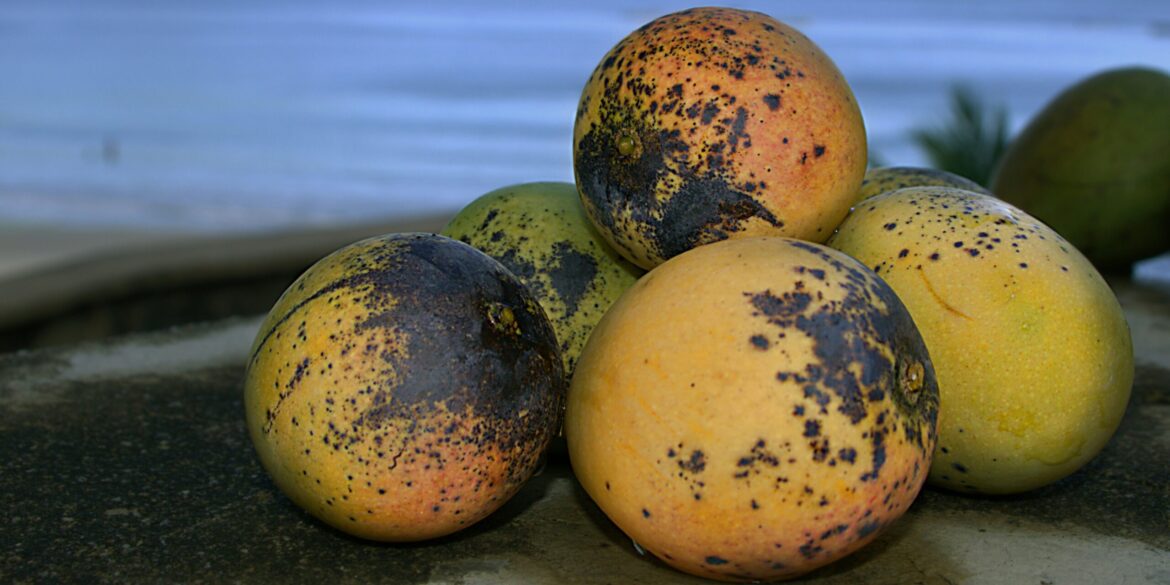A new clinical trial led by researchers at George Mason University has found that eating a fresh mango every day may improve insulin sensitivity and blood sugar regulation in adults at risk of developing type 2 diabetes. The findings, published this month in the journal Nutrients, challenge long-standing dietary assumptions about fruit sugar and its impact on metabolic health.
The randomized controlled trial followed a group of prediabetic adults over six months. Participants were split into two groups: one consumed a fresh mango daily, while the other received a low-sugar snack designed to act as a control. By the end of the study, the mango group displayed significantly better blood glucose control, improved insulin sensitivity, and even modest reductions in body fat compared to the control group.
These results are particularly noteworthy given mango’s natural sugar content. Traditionally, people at risk of type 2 diabetes have been cautioned against eating high-sugar fruits, under the assumption that they could worsen blood glucose levels. But the study suggests that the sugars in mango behave differently than refined sugars or even fruit juices, likely due to the fruit’s unique nutritional profile.
Researchers point to mango’s fibrous structure and bioactive compounds as possible explanations for its unexpected benefits. Mangoes are rich in antioxidants such as mangiferin, which has been studied for its anti-inflammatory and glucose-regulating properties. The fibrous matrix of the fruit also slows sugar absorption, preventing sharp spikes in blood glucose. Together, these qualities may create a metabolic environment that supports better insulin function and improved overall health.
The study’s lead investigators emphasized that the findings should not be taken as a green light to consume unlimited amounts of mango or other sweet fruits. Instead, the results highlight the importance of food context. Unlike added sugars, the natural sugars in fruit are packaged with fiber, vitamins, and phytochemicals that appear to modulate their effects on the body. “We need to move beyond the idea that all sugars are equal,” the researchers said, noting that whole fruits can play a beneficial role in balanced diets, even for individuals managing blood sugar concerns.
Nutrition experts outside the study welcomed the results but urged caution. While the trial provides compelling evidence that mangoes may help support metabolic health, it was relatively small in scale and limited to a six-month timeframe. Larger studies, with more diverse populations and longer follow-up periods, will be necessary to determine whether the observed benefits persist over time and can translate into meaningful reductions in diabetes risk.
The findings also tie into a broader conversation about how dietary guidance should address fruit consumption. For decades, nutrition advice has often lumped together all sources of sugar, whether from candy, soda, or fruit. However, recent research increasingly suggests that whole fruits behave differently in the body than processed sugars. This study adds to a growing body of evidence that fruit sugars, when delivered in their natural food matrix, may actually support rather than undermine metabolic health.
For people at risk of type 2 diabetes, the implications could be significant. Rather than excluding naturally sweet fruits, incorporating them into a diet rich in fiber, whole grains, lean proteins, and healthy fats may prove to be a more effective approach to prevention and management. Mangoes, with their high content of vitamin C, vitamin A precursors, and polyphenols, could emerge as a particularly valuable addition to such diets.
Beyond clinical implications, the research could also impact public perceptions of fruit consumption. The mango industry has long promoted the fruit’s nutritional benefits, but scientific validation through independent trials lends weight to its health claims. At the same time, the study’s authors were careful to emphasize that the findings are preliminary and should not be interpreted as a prescription to eat mangoes daily without consideration of overall calorie balance and individual health needs.
Still, the study is a meaningful step in reevaluating dietary advice for prediabetic populations. As rates of diabetes continue to rise in the United States and globally, innovative approaches to prevention are urgently needed. Simple, accessible dietary interventions — like incorporating whole fruits into daily eating patterns — may prove to be a cost-effective and sustainable way to improve public health.
In the end, the message is less about mango specifically and more about how we think of fruit sugars in general. Context matters: when sugars are delivered in a package of fiber, antioxidants, and other nutrients, their effects on the body can be dramatically different from when they come in refined or processed forms. This study invites both clinicians and the public to take a fresh look at fruit’s role in promoting metabolic health.

